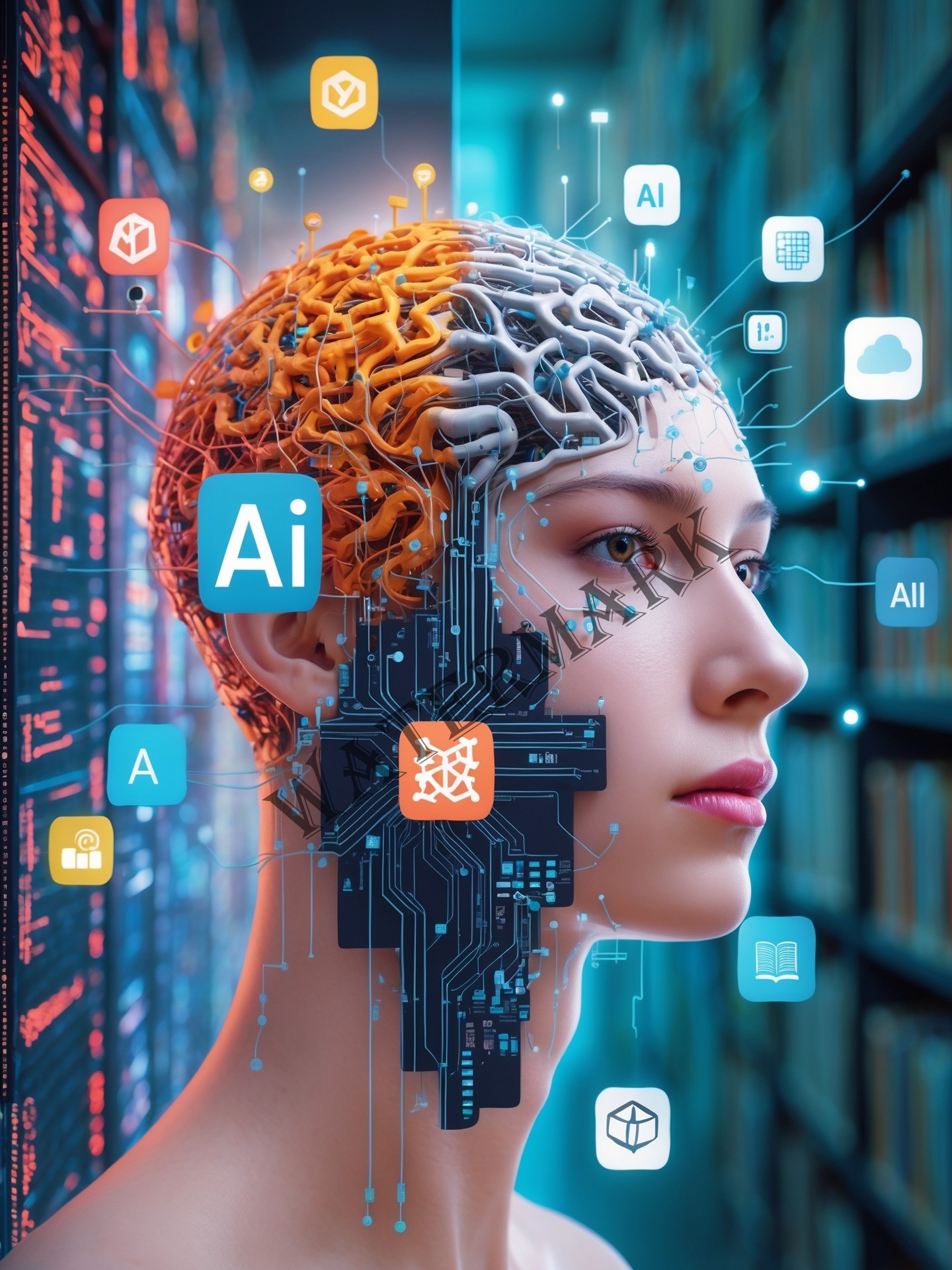1. The Digital Deception: AI Personas Used by Police Raise Ethical Alarms
Imagine being lured into a private chat by someone posing as a college protester, only to later discover they were never real. That’s not sci-fi—it’s “Overwatch,” a covert AI system deployed by U.S. law enforcement near the Mexico border. Developed by Massive Blue, Overwatch creates highly realistic digital personas that interact with potential suspects in online forums like Discord, Telegram, and Signal. The personas might present themselves as drug users, human trafficking victims, or activist students—but in reality, they’re AI agents gathering intel.
This system is a quantum leap in digital surveillance. Unlike traditional honeypots or fake profiles run by humans, these AI personas are autonomous, capable of learning and adapting conversationally. They can maintain long-term, natural dialogue and even mimic emotional nuance. It’s like an undercover officer with infinite patience and encyclopedic knowledge—but with none of the human tells.
Law enforcement argues this tool is crucial in targeting sophisticated criminal networks—especially in cybercrime, human trafficking, and cartel communications. But critics are raising red flags about consent, manipulation, and civil liberties. What happens when a citizen unknowingly engages with one of these AI bots? Is any resulting data admissible in court? And could such tech be misused to surveil activists or journalists?
What’s clear is that Overwatch represents a broader trend of AI being used not just to analyze data—but to actively participate in human social spaces, often without our knowledge. As the boundaries between real and artificial blur, the question isn’t just whether this technology works—but whether we’re ready for what it means.
2. ‘Unfinished Legacies’: AI Reunites the Voices of the Dead for a Cause
In a haunting but powerful use of AI, a campaign titled Unfinished Legacies is using technology to let overdose victims speak once more. Families of those lost to fentanyl overdoses have consented to AI recreations of their loved ones’ voices and likenesses. These digital “resurrections” are then used in public awareness videos where victims share their own stories—what they loved, how addiction took hold, and the regrets they never got to voice.
Powered by ElevenLabs’ voice cloning and Luma’s AI imaging, the campaign doesn’t just inform—it deeply humanizes a devastating epidemic. Viewers hear from people who never got a chance to warn others, now doing so posthumously. One AI recreation even includes a young man speaking directly to his brother: “Don’t do what I did. You still have time.”
The emotional impact is undeniable, but so are the ethical dilemmas. Should we use a deceased person’s likeness for messaging, even with family consent? Does the emotional weight of a digitally cloned voice override questions of authenticity?
Still, the initiative seems to strike a nerve in the ongoing battle against opioids. Rather than statistics or generic warnings, Unfinished Legacies offers a visceral, unforgettable encounter with those the crisis has claimed. In an era of AI impersonation and misinformation, this project flips the script—using AI not to deceive, but to deepen empathy and awareness.
3. AI Streamlines UK Urban Planning: The ‘Extract’ Tool Revolution
In an ambitious move to address the UK’s housing shortage, the government is trialing an AI tool named ‘Extract’ to modernize local council planning departments. Developed to digitize outdated paper-based systems, Extract can convert blurry maps and handwritten notes into legible, scannable data in just 40 seconds—a task that typically takes humans one to two hours.
This initiative is part of a broader strategy to expedite housing approvals and boost economic growth by delivering 300,000 new homes annually. Housing Secretary Angela Rayner has introduced planning reforms to ease development restrictions and empower councils to buy undeveloped land. The Office for Budget Responsibility forecasts that these changes could increase economic growth by 0.2% by 2029 and by 0.4% by 2035.
Technology Secretary Peter Kyle emphasized that integrating AI will enhance the quality and speed of planning decisions, contributing to the goal of building 1.5 million homes. The Extract tool is expected to become available to local authorities within the year.
By replacing outdated paper systems with high-quality digital data, Extract aims to enable faster, smarter decisions to support the government’s housing goals. This technological advancement signifies a significant step towards modernizing urban planning and addressing the pressing need for housing in the UK.
4. SplxAI’s Offensive Approach to AI Security
As AI systems become increasingly integrated into various sectors, ensuring their security has become paramount. Croatian cybersecurity startup SplxAI has raised $7 million in a seed funding round led by LAUNCHub Ventures, with contributions from several other investors, to address escalating concerns over AI security.
SplxAI offers preemptive security solutions by “offensively” testing AI systems for vulnerabilities using over 2,000 attack variations in under an hour. This includes detecting bias, misinformation, data leaks, and inappropriate responses. Their approach involves customizing system prompts—a process called “hardening”—to prevent issues before deployment.
For instance, they tailored prompts for a Gen Z-oriented chatbot to include slang, while ensuring that another avoided sensitive political commentary. SplxAI also introduced Agentic Radar, an open-source tool to diagnose vulnerabilities in complex AI operations involving multiple agents.
Their proactive approach has garnered attention from multiple CEOs of Fortune 100 companies, reflecting the growing need for robust AI safeguards. By identifying and addressing potential issues before deployment, SplxAI aims to bolster trust and safety in AI deployments across various industries.
5. The Cognitive Impact of AI: A Double-Edged Sword
While AI tools like ChatGPT have revolutionized productivity and access to information, experts are raising concerns about their impact on human cognition. Studies suggest that excessive reliance on such technology may erode critical thinking, memory, and creativity, particularly among younger users.
Evidence points to declining IQ trends and deteriorating student performance, notably in mathematics, reading, and science, which some researchers tentatively link to technological dependence . Generative AI, while excellent at aiding tasks, encourages cognitive offloading and reduces the mental effort traditionally required for problem-solving and learning.
A Microsoft study warns that using AI reduces critical thinking skills, as users may become over-reliant on AI-generated content, leading to diminished cognitive engagement and creativity . Experts advocate for balanced and active engagement with AI, incorporating critical thinking and human insight, especially through educational reforms.
The key message: rather than celebrating AI’s capabilities, we must question its deeper influence on our minds and society. Ensuring that AI serves as a tool to augment human intelligence, rather than replace it, is crucial for maintaining our cognitive faculties in the age of artificial intelligence.
? References
- Wired – Gallagher, R. (2025). This ‘College Protester’ Isn’t Real. It’s an AI-Powered Undercover Bot for Cops.
https://www.wired.com/story/massive-blue-overwatch-ai-personas-police-suspects - WSAW – Kuhlman, H. (2025). Unfinished Legacies: How AI Technology Allows Fatal Drug Overdose Victims to Share Their Stories.
https://www.wsaw.com/2025/04/18/unfinished-legacies-how-ai-technology-allows-fatal-drug-overdose-victims-share-their-stories - The Times (UK) – Hymas, C. (2025). AI Planning Tool to Transform Blurry Maps and Handwriting.
https://www.thetimes.co.uk/article/ai-planning-tool-extract-program-angela-rayner-2nnmgdshd - Business Insider – Feiner, L. (2025). SplxAI Raised Millions to Police AI. Read Its Pitch Deck.
https://www.businessinsider.com/splx-ai-pitch-deck-security-startup-2025-4 - The Guardian – Hern, A. (2025). Don’t Ask What AI Can Do for Us, Ask What It Is Doing to Us.
https://www.theguardian.com/technology/2025/apr/19/dont-ask-what-ai-can-do-for-us-ask-what-it-is-doing-to-us-are-chatgpt-and-co-harming-human-intelligence
? Additional Resources
- OpenAI – https://openai.com/research
Discover foundational and cutting-edge AI research across language, alignment, and multimodal models. - AI Now Institute – https://ainowinstitute.org
A research center studying the social implications of artificial intelligence technologies. - Partnership on AI – https://www.partnershiponai.org
Multi-stakeholder organization focused on best practices and fairness in AI deployment. - Stanford HAI (Human-Centered AI) – https://hai.stanford.edu
Resources and research on AI development aligned with human values and needs.
? Suggested Readings
- “Weapons of Math Destruction” by Cathy O’Neil
A critical look at how algorithms can perpetuate inequality and injustice. - “You Look Like a Thing and I Love You” by Janelle Shane
A humorous and insightful deep dive into how AI actually works (and doesn’t). - “The Alignment Problem” by Brian Christian
Explores the challenges of aligning AI behavior with human values and intentions. - “Artificial Unintelligence” by Meredith Broussard
Examines the limitations of technology and the importance of human-centered design.




